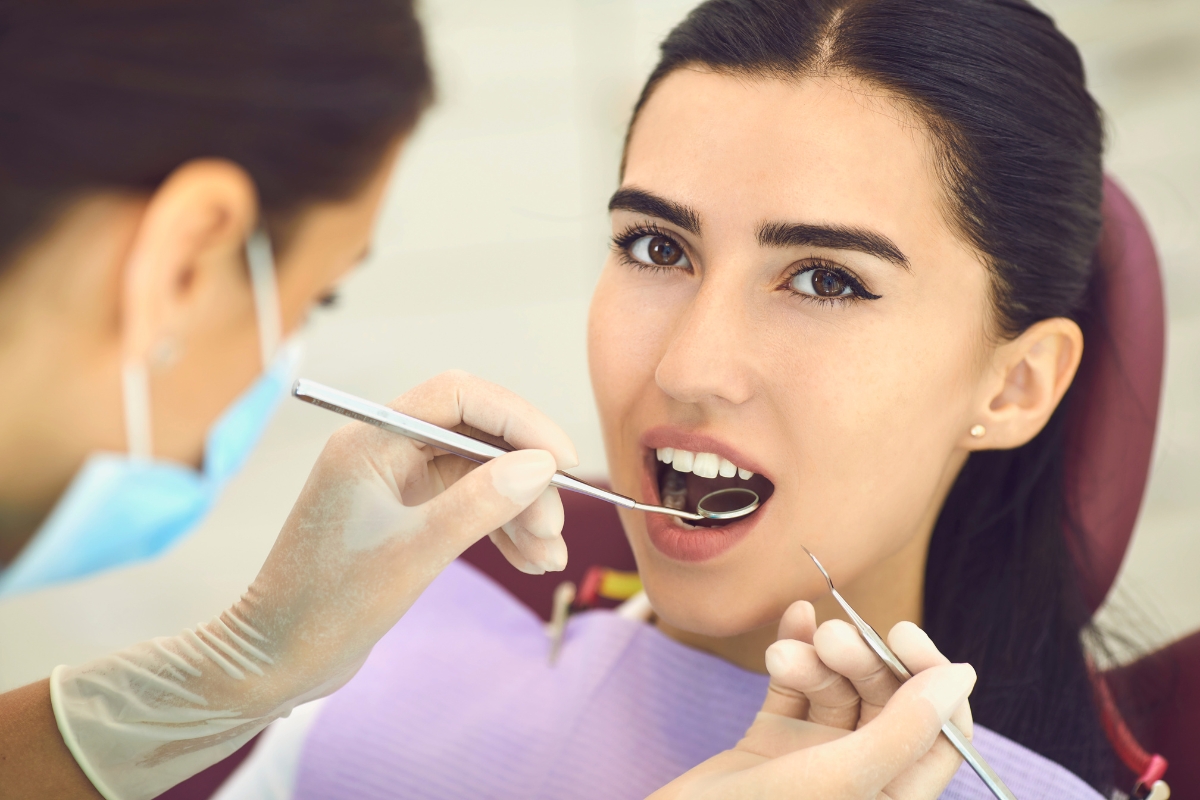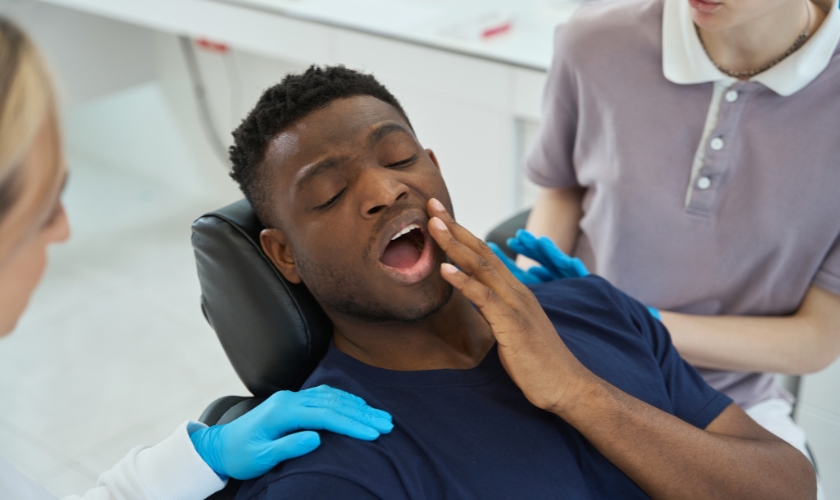
Sports are exciting, but they come with their own set of risks—especially when it comes to your smile. Whether it’s a high-impact collision on the football field or an unexpected fall during a basketball game, dental injuries are more common than you might think.
As much as we focus on protective gear for the body, the teeth and gums often take the brunt of the impact. That’s why it’s crucial to understand the connection between sports and dental emergencies and how to protect your smile.
Knowing how to identify and respond to a dental injury can make all the difference. From knocked-out teeth to fractured jaws, time is of the essence when it comes to saving your child’s smile—or even your own.
In this blog, we’ll walk you through common sports-related dental injuries, ways to prevent them, and what to do when they happen. Whether you’re a parent, coach, or athlete, being prepared for a dental emergency ensures that your smile stays intact, both on and off the field.
Ready to protect those pearly whites? Let’s dive in!
Common Sports-Related Dental Injuries
Sports-related dental injuries are not uncommon and can range from minor cuts to severe fractures. Understanding these injuries helps athletes, parents, and coaches be more prepared.
- Knocked-Out Teeth: These occur when a tooth is displaced due to a direct blow or collision. Immediate action is essential to save the tooth.
- Broken Teeth: Teeth can crack or fracture during physical activity, particularly with impacts or falls. A broken tooth may cause pain and expose the inner layers of the tooth.
- Cuts to the Gums: Accidental collisions or falls can result in lacerations to the gums, leading to swelling, bleeding, or infection.
- Jaw Fractures: These are more severe injuries, often resulting from high-impact sports like football or hockey.
Certain sports pose a higher risk of dental injuries. Football, basketball, and hockey frequently result in accidents due to the intense physical nature of these games. Additionally, sports like cycling can lead to falls and accidents, putting the mouth at risk.
Why Athletes Are at Higher Risk for Dental Injuries?
Athletes, especially those involved in high-contact sports, face a greater risk of dental injuries. The nature of these sports, combined with insufficient protective gear, increases the chances of an injury. Here’s why:
- Physical Nature of Sports: Sports like football and hockey involve heavy contact, whether through tackles, falls, or collisions. These impacts can easily result in dental injuries.
- Lack of Proper Protective Gear: Many athletes don’t use mouthguards or wear ill-fitting gear, leaving their teeth vulnerable. Even minor accidents can lead to serious dental damage.
- Higher Statistics in Athletes: Studies show that athletes are more likely to sustain dental injuries than non-athletes. A report by the American Dental Association found that nearly 40% of dental injuries are sport-related.
How to Prevent Sports-Related Dental Injuries?
Preventing dental injuries in sports is possible, and the most effective way to protect teeth and gums is by using the right gear. Here’s how to minimize the risk:
- Mouthguards: One of the best ways to prevent dental emergencies in sports is to wear a mouthguard. Mouthguards absorb shock and prevent teeth from breaking or getting knocked out during impacts.
- Custom vs. Stock Mouthguards: Custom mouthguards offer a better fit and more protection. They are molded to fit the exact shape of your mouth, providing maximum comfort and safety. Stock mouthguards, while more affordable, may not offer the same level of protection.
- Other Protective Gear: In addition to mouthguards, wearing helmets with face shields and protective facial gear can help protect the face and teeth during contact sports.
What to Do in the Event of a Dental Emergency During Sports?
Sports-related dental injuries require quick action to minimize long-term damage. Here’s what to do when a dental emergency occurs:
- Knocked-Out Tooth: If a tooth gets knocked out, rinse it gently in water (avoid scrubbing). Place it back into the socket if possible, or store it in milk and seek immediate care.
- Fractured Tooth: If the tooth is fractured, save any broken pieces, and apply a cold compress to reduce swelling. Visit a dentist as soon as possible.
- Cuts to Gums: Clean the wound with warm water and apply pressure to stop bleeding. For more severe cuts, it’s best to seek emergency dental care.
- When to Seek Care: If the injury causes severe pain, bleeding, or if a tooth is knocked out, head to the dentist immediately. An emergency dentist in Augusta can handle urgent cases and offer the right care.
Emergency Dental Care: When Time Is Critical
When dealing with dental injuries, time is critical. Delaying care can result in more severe damage that may require complex and costly treatments. Here’s why acting quickly matters:
- Immediate Care is Crucial: For injuries like knocked-out teeth, getting to a dentist within 30 minutes to an hour can significantly improve the chances of saving the tooth. The sooner you seek care, the better the outcome.
- Potential Long-Term Consequences: Without proper emergency treatment, dental injuries can lead to infections, permanent tooth loss, or the need for extensive dental procedures like root canals or implants.
- Emergency Care Expectations: During emergency dental visits, the dentist will assess the injury, clean the area, and recommend the best treatment options. This could range from reimplanting a knocked-out tooth to performing minor surgeries to fix fractures.
Sports injuries don’t have to leave a lasting mark on your child’s smile. With the right preventive care, quick action, and timely dental care, you can protect your athlete’s teeth from damage. Ensure they wear the proper protective gear, especially mouthguards, and know how to respond to dental emergencies in sports. Keep these tips in mind, and your child’s smile will be safeguarded on and off the field.


